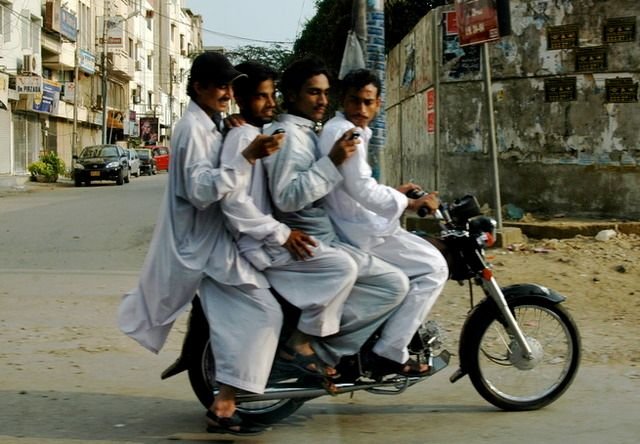Pakistan ICT and Internet Economy Report (Part 04/09)
Pakistan going Mobile
In the context of aforementioned information, it has been determined how the telecommunication sector is playing a vital role in the economic stability of Pakistan. With one fixed line operator, 5 mobile companies and a few random operators working to make the communication network stronger in the country, this industry will be the strongest ally of the economy in the upcoming years. The potential of this sector to add a lot of value to the economic prosperity shouldn’t be doubted.
The mobile industry was almost non-existent in the early 21st century. People of Pakistan weren’t familiar with this technology and thus, there was hardly any demand for mobile devices. However, the sector started growing over the years and in the second decade of this century mobile technology became prevalent and almost every citizen subscribed to mobile services. A huge socio-economic change has been observed due to such digital revolution.
As people are becoming more technology friendly, mobile phones are becoming the need of the hour. The way this change has connected the entire country is praiseworthy and people now have access to many global services which wouldn’t have been possible in the past. From a businessman living in an urban city to a common man thriving in some distant rural area, mobile phones have become an integral part of everyone’s life. Many mobile telecom operators have tapped the Pakistani market after observing such growing trends and keeping the needs of consumers in mind.
National and International Mobile Providers
According to a 2015 survey report, the number of mobile phone users in Pakistan has reached 124.24 million in the same year. The country has been ranked 5th in Asia in mobile phone users. The socio-economic shift in the culture has provoked the usage of mobile phones among people of every class. There is a variety of mobile phones that are made according to the economic class of the people. The diversity of price models also explains the very extensive use of mobile phones among the masses. The 5 principal mobile phone service providers are Mobilink, Warid, Ufone, Telenor, and Zong.
Mobilink started its cellular subscription services in the 1990s when the concept of mobile phone was alien to the Pakistani industry. It is the first ever company to enter the telecom sector of Pakistan with digital GSM technology and provide communication solutions to customers as well. Observing the investment potential in the industry, Mobilink came up with two different kinds of solutions being Indigo (for post-paid customers) and Jazz (for prepaid customers). Both Jazz and Indigo have become the country’s most popular cellular networks, providing subscriptions to individuals, corporations, multinationals and business tycoons. The biggest chunk of Pakistani mobile phone users have subscribed to the services of Mobilink, making it the premier choice for all users.
Currently, Mobilink owns the largest market share of the industry with about 40 million subscribers. The company not only has the biggest customer base but has also been merging with smaller companies by taking over their market shares. These mergers had a huge impact, not just on the economy of the country but also on the convenience level for consumers. The merger was officially announced in 2015 but further action plans are in the process for continuing operations. The authorities are aware that it will take another year in order to give this merger a final shape. There will be compound services for the customers of the companies involved and they will continue using the same numbers. The LTE services offered by Warid (one of the merging companies) will give an edge to this merger improving services for all current and incoming Mobilink clients.
Warid started its operation in Pakistan in the post-2000 era. It was originally owned by the Abu Dhabi group of Dubai providing communication services to Pakistanis. With its 10 million subscribers, it has sold 100% of its shares to Mobilink.
Besides Mobilink, the previously-mentioned Pakistan Telecommunication Corporation Limited (PTCL) also owned a part of Pakistan's mobile market. Its subsidiary Ufone today works under the control of the Etisalat group since part of the PTCL was privatized in the mid-2000s. Contrary to its early well-developed position in the market, subscriptions for Ufone have started to drop down over the past years. The current number of people using Ufon services is 17.80 million which is quite low compared to their competitors like Mobilink, Telenor, and Zong.
Telenor is a Norway-based group that initiated its operations in Pakistan after large investments in the telecommunication sector. The company has been allowed by Pakistan Telecommunication Authority to provide GSM services to mobile phone users. With its over 30 million subscribers, Telenor has become prevalent in the country's telecom industry in a very short period of time. The service is considered to be the second best after Mobilink and it is providing a wide range of communication strategies to numerous business groups. With its packages for every kind of user, the company has earned the trust of millions of Pakistani customers.
Another international actor in Pakistan's mobile market is Zong, a subsidiary of China Mobile, which is one of the largest telecom operators in the world with millions of subscribers. The reach of China mobile is known to be wide and extensive especially in the Asian market.
China Mobile tapped the Pakistani market through introducing Zong as a telecom operator in 2008. With its reliable coverage, affordable packages, and tariffs, the company has already matched the level of services provided by giant corporations working in the telecom industry of Pakistan. After obtaining a license for providing GSM services to the Pakistani citizens, Zong has embarked on the journey of becoming the fastest growing service in Pakistan's telecommunication industry.
Altogether, the five telecom companies presented above are providing their services to over 120 million cellular subscribers in Pakistan. With economical services for every class and an extensive and ever-growing network, more and more Pakistan citizens are becoming prone to mobile usage.
Coming next: The Mobile Device Industry

looks like fun
thanks for your interest
You were lucky! Your post was selected for an upvote!

Read about that initiative
merci!
Resteemed by @resteembot! Good Luck!
The resteem was paid by @greetbot
Curious?
The @resteembot's introduction post
Get more from @resteembot with the #resteembotsentme initiative
Check out the great posts I already resteemed.
Hi. I am @greetbot - a bot that uses AI to look for newbies who write good content!

Your post was approved by me. As reward it will be resteemed by a resteeming service.